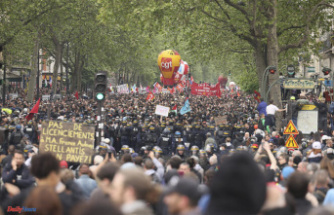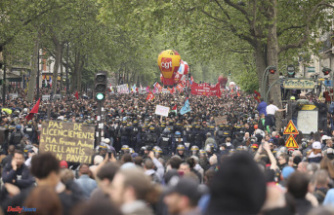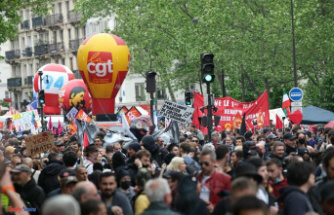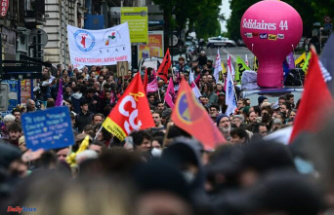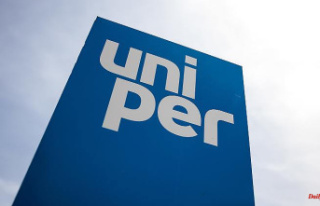The way is clear for supporting suppliers in the gas crisis and cushioning rising prices. The ailing gas importer Uniper in particular should benefit from this. Economist Jens Südekum warns, however: In the end, the levy solution is a gas price cap through the back door.
The ailing energy giant Uniper can hope: After the Bundestag, the Bundesrat also gave a free hand to support suppliers and cushion customer prices in the gas crisis. In this way, regulations can be put into effect to support importers hit by the Corona crisis, up to and including state entry, based on the model of the Lufthansa rescue. The energy law package also contains provisions on how importers can pass on their additional costs more quickly and more evenly.
For economist Jens Südekum, this change in the Energy Security Act was "no alternative". "If Uniper were to go bankrupt, the entire German gas supply would collapse," he tells ntv.de. And lessons from the Lufthansa rescue had shown that it was quite possible for the state to get out of state participation unscathed.
With its business model, the energy group Uniper is driving according to estimates by the Standard rating agency
There is still no agreement on this. According to government circles, the federal government is still negotiating support measures with Uniper. Claudia Kemfert from the DIW, unlike Südekum, considers it "incredibly bitter" that German taxpayers' money now has to be used to financially support fossil energy companies that have gotten into this difficult situation through self-inflicted errors. "Fossil energy companies have reaped lavish profits over the years and made wrong decisions for which the whole of society must now take responsibility." But she also thinks it is right that funds are found to support companies in crisis.
The law was written in an urgent procedure because the federal government fears that Uniper's exit could lead to a chain reaction. Südekum warns: Without Uniper, the municipal utilities would be without gas and would have to see if they could get gas in any other way. But that's not so easy, because the municipal utilities have no direct contracts with Gazprom. "Ultimately, private households would have to pay for it," says Südekum.
Kemfert also believes a domino effect is possible. However, the energy companies are thriving companies that experience short-term liquidity bottlenecks and are basically able to cope with the crisis. "High gas prices are passed on to consumers, so the probability is low that a company of this size will really go bankrupt," says Kemfert ntv.de. This would only be possible if the high gas prices are not paid and the group is left with the high costs alone.
Even if now is not the right time to draw long-term consequences from the gas crisis, economist Südekum makes it clear: the ultimate goal is the expansion of renewable energies. "The aspect of supply reliability and diversification of sources of supply will play a much greater role in the future than has been the case in the past." It must now be considered: What does a value chain look like that can compensate for the loss of a supplier?
Such considerations do not help in the short term. It's more about the question: Who pays the gas bill? Either the consumers do this through higher prices or the state jumps in with some form of subsidy. If the price adjustment clause is activated, suppliers can adjust their prices and suddenly pass on the increased costs to all customers. In this case, according to Südekum, there is a real risk of a price shock. "Then the prices for customers will increase by a factor of five to six in one fell swoop."
Alternatively, there is the option of a cost allocation solution. Suppliers are not allowed to adjust the prices themselves, but would have their losses covered by a state cleaning agency. This would in turn levy a network fee, which would then be passed on to all gas customers. This means that the burden of the high prices would be evenly distributed. "Here, however, there is a great danger that the levy will be set far too low for political reasons, because households do not want to be expected to pay the high prices," says Südekum. In the end, the levy solution is a gas price cap through the back door. This would leave Uniper and other suppliers directly on the state drip - for a long time.
"As hard as it is, we have to face reality," says Südekum. The gas prices have risen extremely and that must also reach the population. "Concealing this with state subsidies does not help either."



